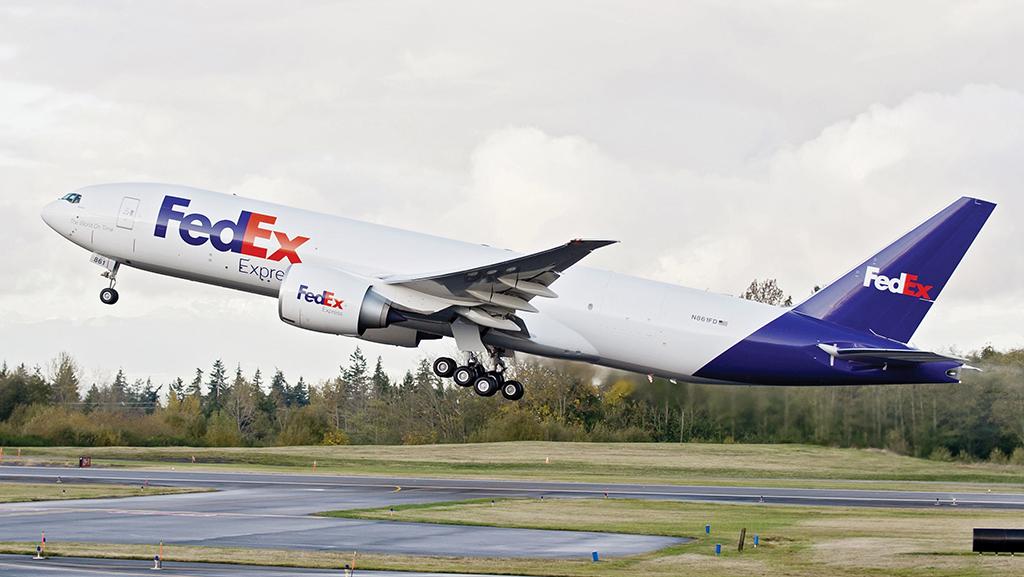
The FAA is requiring new inspections on many 777s after Boeing published incorrect service information supporting a previous set of checks.
A poorly written Boeing bulletin mandated by regulators as part of a requirement to perform 777 structural inspections must be reworked, and operators must conduct more checks to ensure the inaccurate maintenance instructions did not introduce new risks on modified aircraft.
Boeing in October 2021 highlighted the original issue—potential cracks in certain structural parts near center fuel tanks—in a complex, 968-page “requirements bulletin” to operators. The bulletin, prompted by a report of a cracked front spar lower chord found on a 777-300ER undergoing an underwing longeron replacement, divided hundreds of 777s of all variants into nine groups, with multiple aircraft configurations in each group.
The manufacturer recommended inspections at various intervals depending on the aircraft model and configuration. The FAA mandated the checks in September 2022. Other regulators, including the European Union Aviation Safety Agency, adopted the FAA airworthiness directive (AD).
In late 2022, Boeing discovered problems with its 2021 bulletin. The most critical involved insufficient detail on removing and replacing fastener covers, or caps, located inside fuel tanks. The caps serve as protection against a lightning strike triggering a spark and a potential fuel tank explosion.
For some airplane groups, Boeing did not clearly explain the cap removal and replacement process. For others, the bulletin references a Boeing “standard overhaul practices manual” that specifies using caps that are too thin. Boeing’s instructions also listed airplanes that did not need inspection—and omitted a few that did.
Boeing in late 2022 informed the FAA and affected customers about the bulletin errors. The company has yet to complete a full revision of the instructions due to the issue’s complexity.
“The manufacturer submitted an initial report of errors in the requirements bulletin affecting cap sealing instructions in late 2022,” the FAA says. “However, given the length and complexity of the requirements bulletin, detailed and complete documentation of these errors was not received until late July 2023.”
The FAA decided to tackle the highest-risk problem—potential noncompliant fastener caps in center fuel tanks—with a new AD based on Boeing’s preliminary revisions shared with operators. In the meantime, Boeing will complete a full revision of the original instructions.
The Aug. 31 AD lays out new instructions for removing and replacing fastener caps as part of the structural inspections, or adding them where they are needed but were not required by the September 2022 directive. The directive was immediately adopted as a rule, bypassing the draft view and public comment process afforded to less pressing requirements.
For aircraft that have already undergone the work mandated last year, the new AD gives operators either 90 or 180 days from its Sept. 15 effective date, depending on certain parameters, to verify fastener caps are compliant and make any needed modifications.
“Fastener cap seals interior to the airplane’s fuel tanks are a critical lightning-protection feature,” the FAA said. “This is particularly true for the center wing fuel tank, which typically contains flammable fuel vapors more frequently than the main wing fuel tanks. . . . If these seals are not replaced properly, and the associated fastener has poor electrical bonding to the airplane structure for any reason, the fastener may spark during a lightning strike and cause a fuel tank explosion.” Noncompliant caps pose risks for aircraft regardless of whether they have flammability reduction or ignition mitigation systems installed, the agency noted, though the risk is greater for aircraft without them.
The directive also removes 777-200s without center fuel tanks from the applicability list and clarifies which 777 freighters (777Fs) need the work. Design changes implemented starting with line number 1743—a 777F delivered to China Cargo Airlines in July—addressed the original issues, the FAA says.
Boeing says it “fully supports” the AD, “which is consistent with guidance we have shared with operators previously.”





